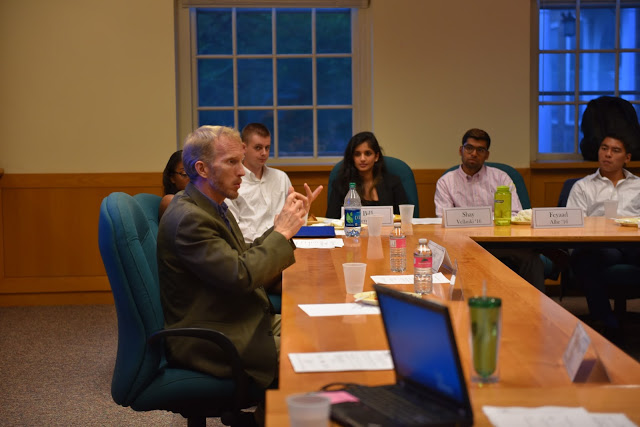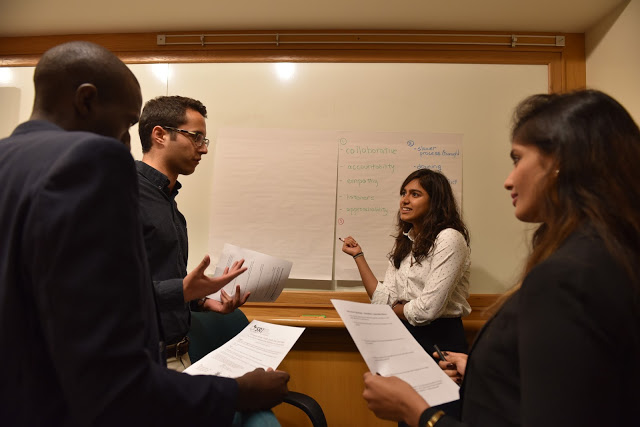On September 17th, Jay Davis ’90, the current coordinator of the Summer Enrichment at Dartmouth (SEAD), the First Year Student Enrichment Program (FYSEP), and the King Scholars outreach programs, came to speak to the Rockefeller Leadership Fellows about combining our respective leadership styles and tendencies when working together to achieve our team goals. Davis has many experiences in different leadership capacities, and discussed his personal leadership qualities as well as how these have evolved over time. He explained that as leaders, we must be introspective and evaluate what we value about other leaders in order to better understand how to lead others effectively. He asked each fellow to explain a leadership trait that they greatly valued. Our responses ranged from empathy and providing constructive feedback to having passion. Davis then asked the Fellows to recount a time when clashing leadership styles resulted in a falling out. He explained that conflicting styles can impede a team’s ability to perform well, in addition to harming a team’s interpersonal health.
 |
| Jay Davis '90 discusses how to combine leadership styles and tendencies to achieve team goals. Photo by Sally Kim '16. |
 |
| The fellows talk about their primary and secondary leadership groups. Photo by Sally Kim '16. |
In order to better understand our own leadership styles, strengths, and weaknesses, Davis had us divide ourselves into “compass” groups. People in the North group were action-oriented doers. The South group were caring and supportive leaders. The East group was comprised of high-level planners and creative thinkers. Lastly, those in the West group were the logistical, detail-oriented leaders. We discussed our own interpretation of each group and how we perceived other groups. It was fascinating to see how the fellows categorized themselves and then discussed which “secondary” group they would belong in. In many cases, the primary and secondary classifications were contradictory leadership styles, demonstrating that the best leaders are adaptable and attempt to eliminate their own deficiencies. Davis’ session demonstrated that an effective team exhibits a mix of all leaders who are able to adapt to their team members’ needs and desires. It was a very engaging and interactive session that left us all more aware of our leadership profiles and styles.
-Written by Julia Pomerantz '16, 2015-16 Rockefeller Leadership Fellow
This ongoing series explores sessions of the Rockefeller Leadership Fellows (RLF) program. RLF provides fellows with resources in leadership theories and practical skills. Selected their Junior Spring, these Seniors take part in the workshops, dinner discussions, and team-building exercises as they gain a better understanding of the qualities and responsibilities necessary for leaders and successful leadership styles.

